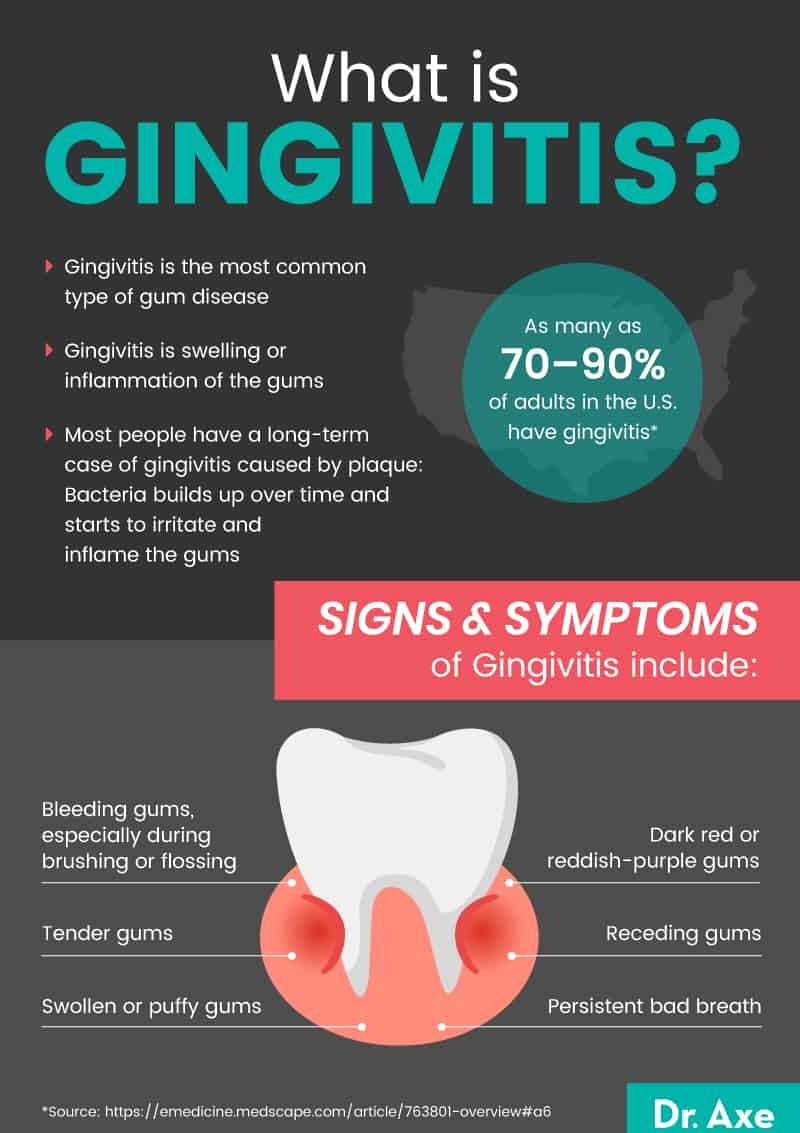How To Treat Gingivitis? Natural Remedies

Gingivitis, a common and mild form of gum disease, occurs when the gums become inflamed due to the accumulation of plaque and bacteria on the teeth. If left untreated, gingivitis can lead to more severe gum disease, known as periodontitis, which can cause permanent damage to the gums and bone supporting the teeth. Fortunately, gingivitis is reversible with proper treatment and good oral hygiene practices. In addition to professional dental care, several natural remedies can help treat and prevent gingivitis.
Understanding Gingivitis
Before exploring the natural remedies for gingivitis, it’s essential to understand the causes and symptoms of this condition. Gingivitis is primarily caused by poor oral hygiene, which allows plaque—a sticky film of bacteria—to build up on the teeth. This plaque can lead to inflammation of the gums, characterized by redness, swelling, and bleeding. Other factors that can increase the risk of developing gingivitis include smoking, diabetes, and certain medications.
Natural Remedies for Gingivitis
Salt Water Rinse: Rinsing your mouth with warm salt water several times a day can help reduce swelling and kill bacteria. Mix 1 teaspoon of salt with 8 ounces of warm water and swish it around your mouth for 30 seconds before spitting it out.
Aloe Vera: Aloe vera has anti-inflammatory properties that can help soothe and heal inflamed gums. Apply aloe vera gel directly to your gums using a cotton swab.
Tea Tree Oil: Known for its antibacterial properties, tea tree oil can help combat the bacteria that cause gingivitis. However, it should be used with caution. Mix a few drops of tea tree oil with your toothpaste or mouthwash, but never ingest it.
Hydrogen Peroxide: Hydrogen peroxide can help kill bacteria in the mouth and reduce inflammation. Dilute hydrogen peroxide with water (equal parts) and use it as a mouthwash. However, use it sparingly and not as a replacement for regular mouthwash.
Vitamin C: Vitamin C is crucial for the health of your gums. Foods rich in vitamin C, such as strawberries, bell peppers, and oranges, can help boost your immune system and fight off infections.
Oil Pulling: This ancient Ayurvedic practice involves swishing oil (such as coconut or sesame oil) in your mouth to reduce bacteria and plaque. Do this for about 10 minutes before spitting out the oil and brushing your teeth as usual.
Turmeric: Turmeric contains curcumin, which has potent anti-inflammatory and antioxidant properties. You can mix turmeric powder with water to create a paste and apply it to your gums or consume curcumin supplements after consulting with a healthcare professional.
Dietary Changes: Eating a balanced diet rich in fruits, vegetables, and whole grains can help keep your gums healthy. Avoid sugary and processed foods that can contribute to plaque buildup.
Professional Dental Care
While natural remedies can complement your oral care routine, they should not replace regular dental check-ups and good oral hygiene practices. It’s essential to visit your dentist regularly for professional cleanings and to address any oral health issues promptly. Your dentist can provide personalized advice and treatment, including scaling and root planing for more severe cases of gingivitis.
Prevention is Key
Preventing gingivitis is easier and less costly than treating it. Here are some preventive measures:
- Brush your teeth at least twice a day with a fluoride toothpaste to remove plaque and bacteria.
- Use an antibacterial mouthwash to kill bacteria and freshen your breath.
- Floss daily to remove food particles and plaque from between your teeth and under your gumline.
- Replace your toothbrush every three to four months or sooner if the bristles are frayed.
- Avoid smoking and tobacco products, which can make you more susceptible to gum disease.
Conclusion
Gingivitis is a treatable and preventable condition. By combining natural remedies with regular dental care and good oral hygiene practices, you can keep your gums healthy and prevent more severe gum disease. Remember, the key to maintaining good oral health is consistency and awareness of your oral health needs. If you notice any symptoms of gingivitis, such as red, swollen, or bleeding gums, don’t hesitate to reach out to your dentist for a professional assessment and guidance.
What are the early signs of gingivitis?
+The early signs of gingivitis include red, swollen, or bleeding gums, especially during brushing or flossing. You might also notice bad breath that doesn’t go away or a metallic taste in your mouth.
How often should I visit my dentist if I have gingivitis?
+If you have gingivitis, it’s recommended to visit your dentist more frequently, ideally every 3-4 months, for professional cleanings and check-ups to monitor your condition and prevent it from progressing to periodontitis.
Can children get gingivitis?
+Yes, children can get gingivitis. It’s essential to teach them good oral hygiene practices, such as regular brushing and flossing, and to schedule regular dental check-ups to prevent and detect any oral health issues early.
Is it possible to reverse gingivitis?
+How does smoking affect gum health?
+Smoking is a significant risk factor for gum disease. It reduces blood flow to the gums, making them more susceptible to disease, and hampers the body’s ability to fight infections, making it harder for gums to heal.
